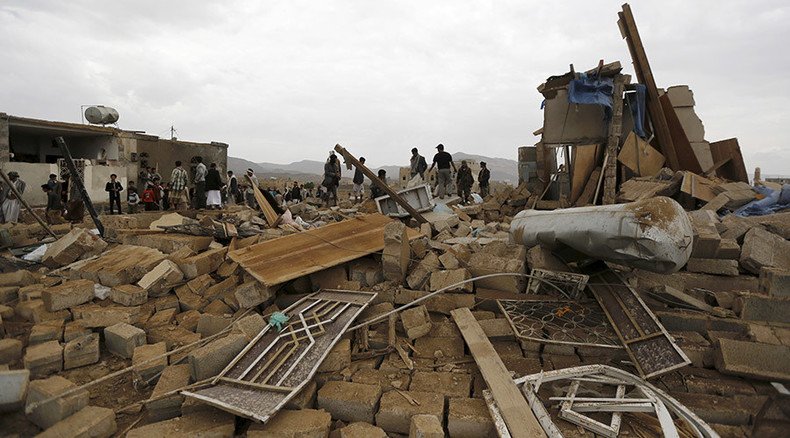Saudi-led airstrike kills 36 civilians at north Yemen bottling plant - reports

At least 36 people have been killed after an airstrike by Saudi-led coalition forces hit a bottling plant in northern Yemen, residents told Reuters.
"The process of recovering the bodies is finished now. The corpses of 36 workers, many of them burned or in pieces, were pulled out after an airstrike hit the plant this morning," the agency learned from one resident, Issa Ahmed, by phone.
Since the Saudi-led forces started their bombing campaign in March, ostensibly to halt the advance of the Shiite Houthi rebels, more than 4,300 people have lost their lives, while the country is in a state of complete collapse, with millions at risk.
'We must act now': #Yemen on brink of famine following bombing of vital port - UN http://t.co/yKADsGG1cdpic.twitter.com/n0yeD5YkSO
— RT (@RT_com) August 20, 2015Aden is a key conflict zone, where supporters of the exiled government of President Abd-Rabbu Mansour Hadi are battling the Houthi movement. Hadi supporters, including powerful regional allies, have been trying to crush the Houthis, who exiled the previous leader into Saudi Arabia, which is now leading the charge in bombing Yemen.
The coalition bombardment has been heavily criticized for causing widespread destruction.
Amnesty international has accused the Saudi-led campaign of leaving a “bloody trail of civilian deaths,” which it says could be viewed as a war crime. A similar criticism was made by the Red Cross, which claimed in late August that “Yemen after five months looks like Syria after five years.”
Yemen bombed into Syria-grade catastrophe in just 5 months – Red Cross http://t.co/GNlN6d9YVbpic.twitter.com/YAKOmQrR1F
— RT (@RT_com) August 20, 2015The news comes days after it became apparent that the country could no longer tolerate the situation unless some form of humanitarian intervention was to take place, with some 13 million Yemenis at risk of starvation, of which about half face a critical situation, according to the UN's World Food Programme (WFP).
On August 22, it was reported that Yemeni President Abd-Rabbu Manoos Hadi had proposed a 15-day ceasefire that would also include the Houthi rebels withdrawing from all their positions. This appears not to have happened; this follows on from another proposal in Switzerland, which also failed.
On that day, up to 65 people lost their lives in another airstrike, 20 of them children.












